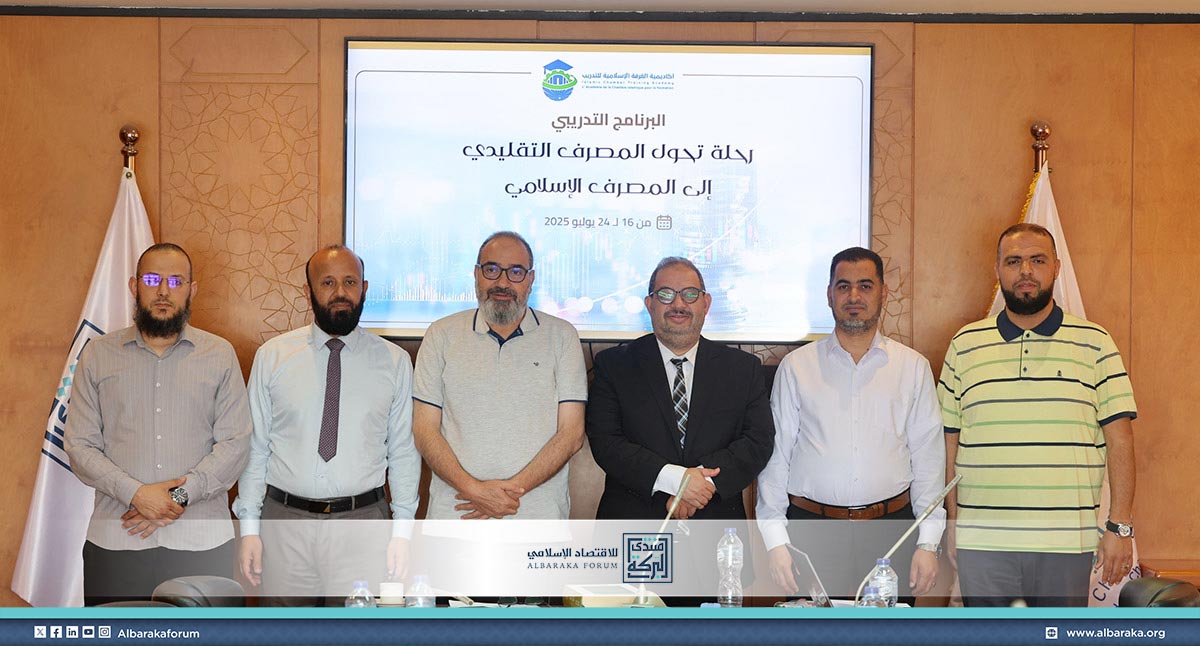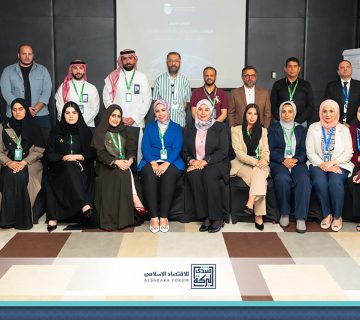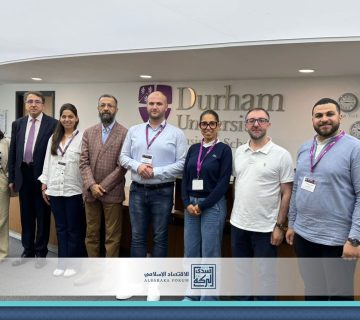Dr. Mohammed Ibrahim, CEO of AlBaraka Forum for Islamic Economy and The Islamic Chamber Holding Company, inaugurated the first day of the training program “The Journey of Transforming a Conventional Bank into an Islamic Bank” by welcoming the esteemed members of the North Africa Bank of Libya.
Dr. Ibrahim reviewed the key topics of the program, addressing the technical and administrative aspects that banks may face during the transformation process, he also highlighted the importance of raising the Sharia knowledge of all bank employees during the transformation phase, acknowledging that while the challenges may be numerous, the long-term benefits will greatly contribute to strengthening the Islamic economy.
Prof. Fayyad Abdel-Moneim Hassanein, Former Egyptian Minister of Finance, Professor of Economics, The Faculty of Commerce, Al-Azhar University, the economic advisor of AlBaraka Forum, explained that transformation requires more than just a change in name or structure. Essentially, there must be a fundamental shift in the principles and systems the bank relies on in its daily operations. He pointed out that this includes a complete modification of procedures and financial models.
The day witnessed lively interactions, with valuable comments shared by Dr. Abdel-Rahman Salem, Head of the Sharia Supervisory Board at the bank, and Dr. Salah Al-Zoubek, Director of the Sharia Audit Department, along with insightful contributions from the other esteemed participants.
Dr. Hassanein Abdel-Moneim Hassanein, Member of the Shariah Supervisory Board at AlBaraka Bank Egypt, and Head of Shariah Compliance and Auditing at AlBaraka Bank, reviewed during the training program “The Journey of Transforming a Conventional Bank into an Islamic Bank”, organized by AlBaraka Forum in cooperation with the Islamic Chamber Academy for Training, the concept of the Investment Wakala Contract, its regulations, pillars, types, and structure.
Dr. Hassanein pointed out that the Investment Wakala Contract is considered one of the important Shariah-compliant tools used for financing working capital in Islamic banks. He added that this Shariah-compliant tool provides Islamic financial institutions with the opportunity to finance various activities according to the prescribed Shariah regulations, ensuring that the agency includes Shariah-acceptable conditions and aligns with the essential pillars of this arrangement.
The training program titled “The Journey of Transforming a Conventional Bank into an Islamic Bank” was concluded, organized by the AlBaraka Forum for Islamic Economy in collaboration with the Islamic Chamber Training Academy, with the participation of an esteemed group of Sharia audit and compliance officers from the North Africa Bank in Libya.
Over the course of nine days of intensive training, the program addressed key topics related to the foundations of Islamic banking, the mechanisms for transitioning from a conventional banking system to an Islamic model, as well as agency and investment services, and the Shariah standards that govern Islamic banking operations.
The program was led by a distinguished group of academic and Shariah experts in the field of Islamic banking, namely, Dr. Mohammed Ibrahim, CEO of AlBaraka Forum for Islamic Economy, Prof. Fayyad Abdel-Moneim Hassanein, Former Egyptian Minister of Finance, Professor of Economics, The Faculty of Commerce, Al-Azhar University, The economic advisor of AlBaraka Forum, and Dr. Hassanein Abdel-Moneim Hassanein, Member of the Shariah Supervisory Board at AlBaraka Bank Egypt, and several other Shariah boards, Head of Shariah Compliance and Auditing at AlBaraka Bank.
The final day featured an open interactive session with enriching discussions between participants and trainers, followed by a closing ceremony and the distribution of certificates.

Comments are disabled.



